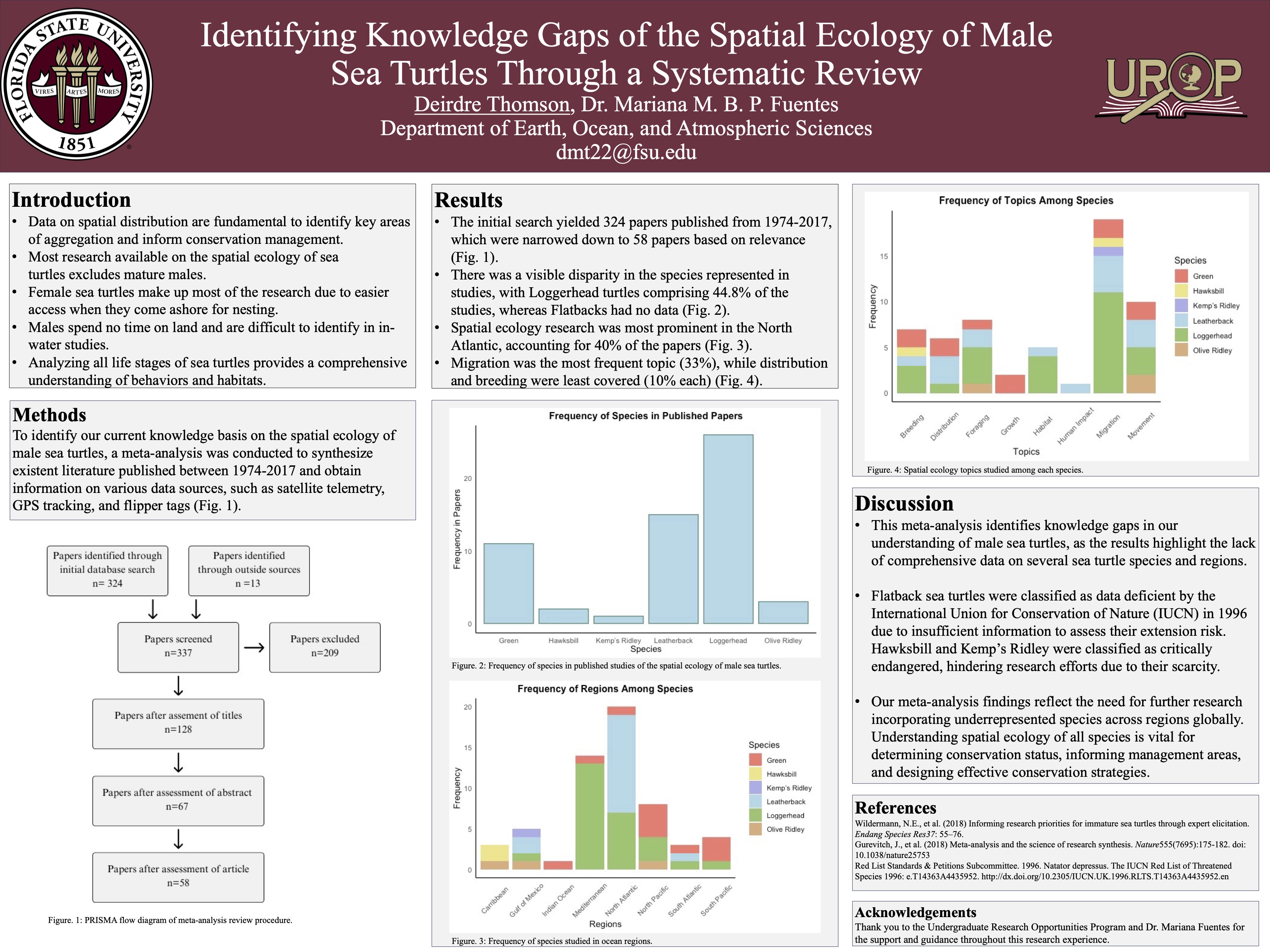Research Symposium
24th annual Undergraduate Research Symposium, April 3, 2024
Deirdre Thomson Poster Session 4: 2:45 pm - 3:45 pm /196

BIO
My name is Deirdre Thomson and I am a sophomore undergraduate honors student from Long Island, New York. I am pursuing a major in biological sciences with a concentration in zoology, as well as a certification in data analysis. I am particularly interested in animal behavior and aspire to work towards improving conservation efforts for endangered species. After obtaining my bachelor's degree, I plan to continue my studies in graduate school.
Identifying Knowledge Gaps of the Spatial Ecology of Male Sea Turtles Through a Systematic Review
Authors: Deirdre Thomson, Dr. Mariana FuentesStudent Major: Biological sciences
Mentor: Dr. Mariana Fuentes
Mentor's Department: Earth, Ocean and Atmospheric Science Mentor's College: Arts and Sciences Co-Presenters:
Abstract
Data on spatial distribution, home ranges, and movement patterns of species are fundamental to identify key areas of aggregation and evaluate potential threats. Substantial research has been conducted on spatial ecology of sea turtles, however most of the available information focuses on females, as they come onshore to nest. Males do not come onshore and are difficult to identify in in-water studies, as identification is only possible after sexual maturity. However, understanding the spatial distribution of all life stages of sea turtles is crucial for a comprehensive understanding of behaviors and habitats. To identify the current knowledge basis of male sea turtles, a meta-analysis was conducted where I synthesized peer-reviewed literature and obtained information on spatial ecology from various data sources, such as satellite telemetry, GPS tracking, and flipper tags. The initial search yielded 324 papers published from 1974-2017, which were narrowed down to 58 papers based on relevance. There was a visible disparity in the species represented in studies, with Loggerhead (Caretta caretta) turtles comprising 44.8% of the studies, whereas Flatbacks (Natator depressus) had no data. Spatial ecology research was most prominent in the North Atlantic, accounting for 40% of the papers. Migration was the most frequently studied topic (33%), while distribution and breeding were least covered (10% each). This meta-analysis identifies knowledge gaps in the spatial ecology of male sea turtles. To enhance our current knowledge, further research should incorporate underrepresented species across regions globally. Understanding spatial ecology is vital for informing management and designing effective conservation strategies.
Keywords: Environmental Science, Sea Turtles, Marine Ecology

